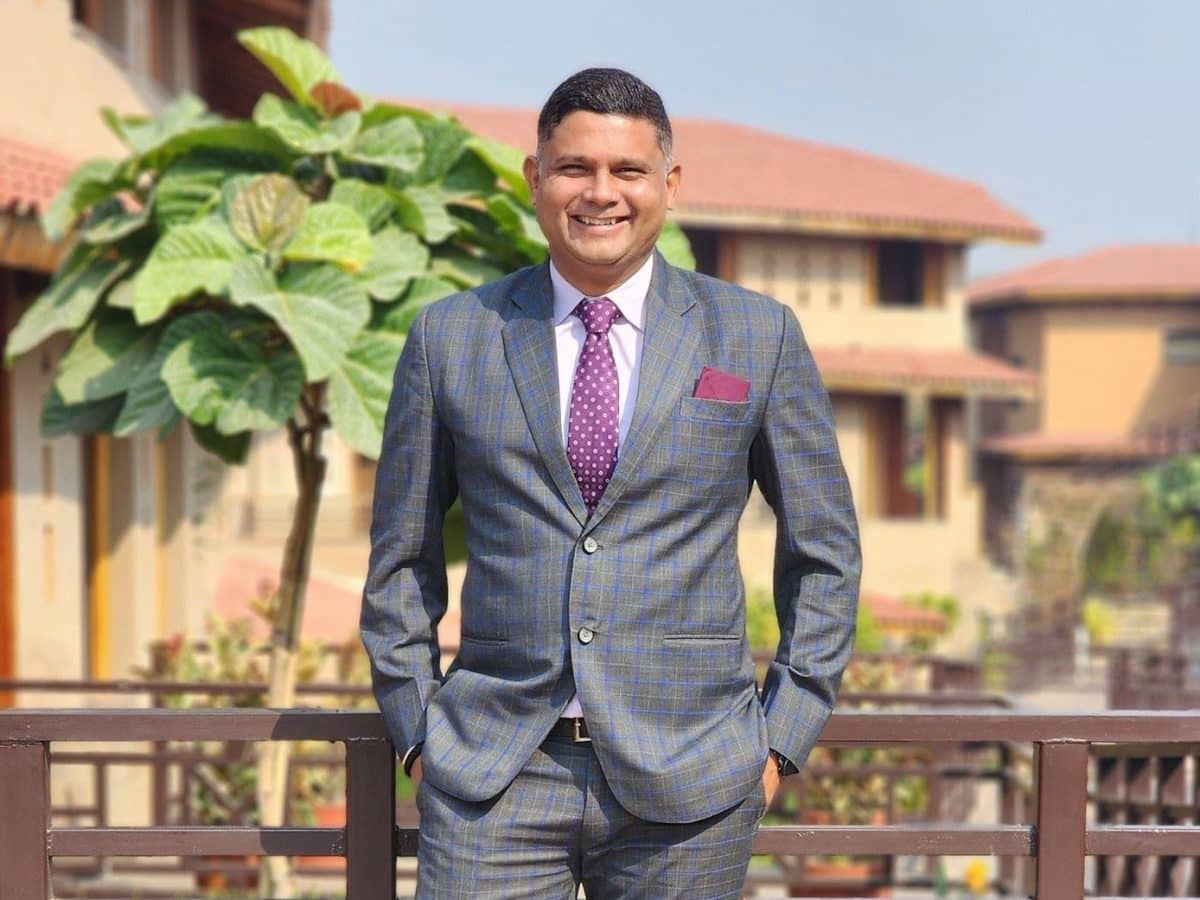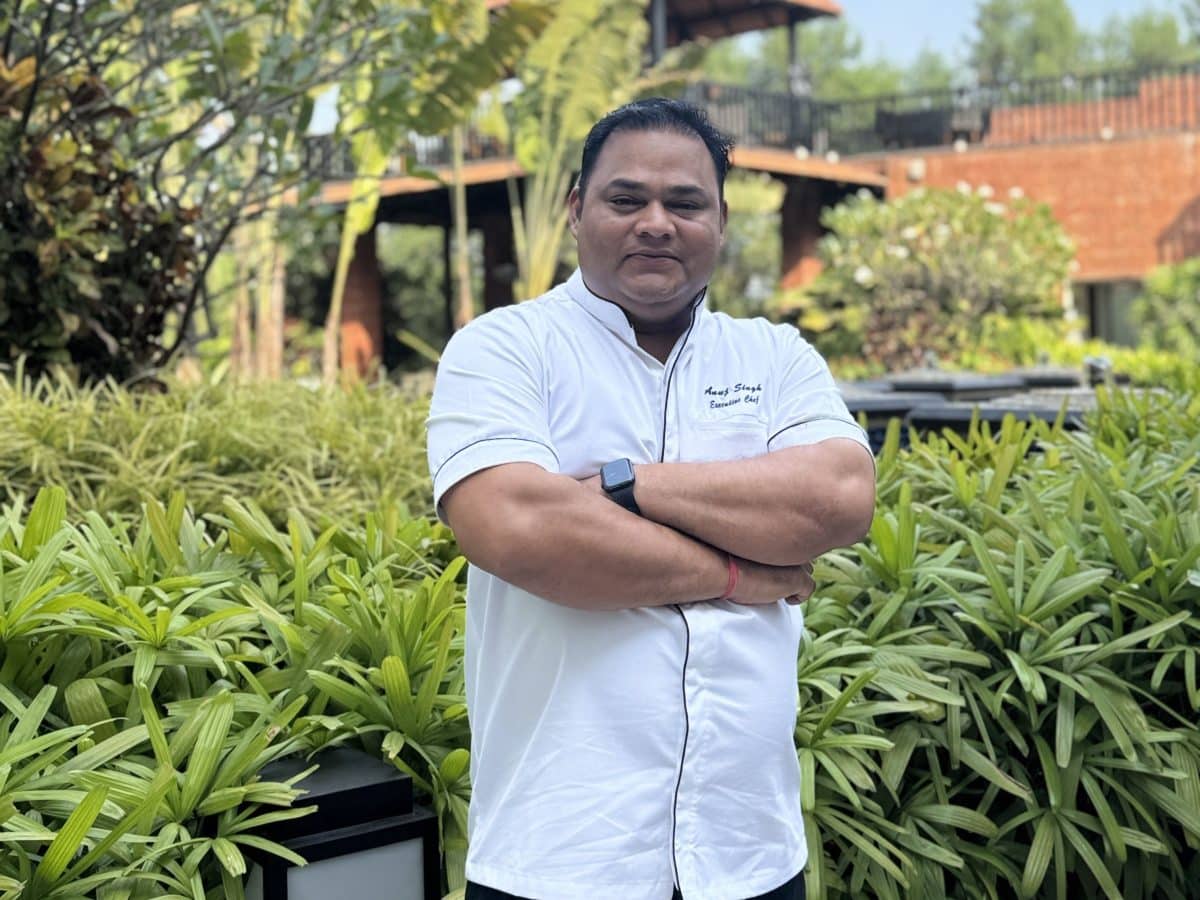A clean and hygienic hotel can turn an average stay experience for a guest into a luxurious one. While lavish and well-appointed amenities and a cosy bed is what a guest may look forward to during their stay, cleanliness and sanitation still ranks top on their priority list.
Clean and ambient rooms can help hotels to double their ROIs whereas unclean rooms, unhygienic food handling and poor facilities can impact customer loyalty. Not only are guest less likely to return, there is also a real possibility of a disease outbreak. Thus, it becomes essential to constantly monitor hygiene practices adopted by hotels, especially in the key revenue-driving segments, i.e. rooms and kitchens, owing to their high operational and commercial value.
Market leaders and industry experts share their insight on the practices that have a major impact on a hotel’s hygiene standards.
Waste management
Managing the waste effectively plays a crucial role in maintaining a hotel’s hygiene as well as in saving costs. “The solid waste at Grand Hyatt Kochi Bolgatty is segregated in three bins, which are colour coded. Green bins are used for biodegradable waste, whereas blue is used to collect paper and plastic and red is used for glass bottles and tins,” says Grand Hyatt, Kochi Bolgatty’s hygiene manager Shalini Jain.
“Segregation starts from the kitchen and when the bins are hal-full, theyare carried to the garbage area and put in the chiller to prevent bacterial growth. The biodegradable waste is collected by the vendor for cattle feed. Besides, used oil is also collected from the kitchen and given to the soap industries on a monthly basis.
Waste water is used in the STP plant, for watering the plant in the garden and in the cooling tower.” At Crowne Plaza Today New Delhi Okhla, the wet and dry garbage are segregated separately. “The wet garbage (waste of vegetables etc) is used in biogas plants, whereas the dry garbage is collected at the garbage room and then handed over to an authorised outside vendor,” says its room division manager, Payal Mehta.
The waste generated at Novotel Goa Dona Sylvia is used in the generation of compost of around 100kg every day as well as in the hotel’s organic vegetable garden. The compost made out of the waste is stored efficiently and is ready to use in a week’s time. At the sewage water treatment plant, the waste water is treated and used for gardening of the entire resort, which is spread across 20 acres.
.jpg?bFskrvnc)
Cleaning procedures and schedules
Whether it is within rooms and plush suites or in a busy kitchen, a well-charted-out sanitation plan can work wonders for a hotel’s ambience. It also ensures that these spaces are cleaned at regular intervals, thereby reducing the risk of bacteria formation.
“It is not easy for a housekeeper or a kitchen steward to maintain the busier areas. A proper schedule helps to instill discipline,” says Bhushan Shetye, Executive Housekeeper, Novotel Goa Dona Sylvia. “it is important for every associate to have a proper work flow, with the timings charted out. The person in charge should do a thorough cleaning while the area is not busy and maintain it throughout the day.”
Most hotels have a set structure and schedule that is followed to ensure none of the areas are ignored or missed. Sai Khavle, Executive Housekeeper, Holiday Inn Mumbai International Airport says, “As a practice, we have regular inspection of rooms that includes a checklist, daily deep cleaning cycle, and mystery audits to ascertain process compliance as part of the hygiene and cleanliness process within hotel rooms. Each guest room is scanned and inspected.
Regular pest inspection and treatments are conducted every month to avoid bugs in bed. The staff makes sure that the hotel is clean and sanitised at all times, and the schedules are in place and being followed.” Jain reports that the cleaning schedule for rooms and the kitchen has been divided into daily and weekly ones. The weekly schedule involves deep cleaning of these spaces. Detailed hygiene plans with checklists and visual reinforcements help to maintain the hotel.
Apart from cleaning schedules, a quick clean-up of the kitchen and the restaurants should be conducted. “The spills, crumbs and the mess from the stove, floors, table and counters should be cleaned immediately and sanitised. Special care should be taken when the spills involve raw meat; a disinfecting spray should be used on priority to prevent the spread of bacteria. The liquid spills on the floor should be addressed first, especially from the safety point of view, as a wet floor may cause accidents,” suggests Khavle.
She further adds that the dishes should be washed, dried and placed in a proper manner, in order to avoid their piling up in the sink, making the kitchen all the more messy. The leftover ingredients should be transferred to airtight containers and stored in the refrigerator or freezer.
Handling the food right
Cleaning, hygiene and best sanitation practices are an integral part of every food handler’s job. It goes without saying that the highest standards of hygiene and sanitation best practices should be followed in the F&B areas to prevent any cross-contamination and health hazards. “Measures such as periodic checks, colour-coded practices, temperature logs, maintaining storage best practices as well as HACCAP standards are some of the best practices that should be followed in the food cooking and service areas,” highlights Shetye.
Besides, “while handling the food,” says Lakshmanan Ramanathan, General Manager, The Westin Chennai Velachery, “care should be taken that all food is date labelled. All chemicals should be stored away from the food processing areas. And most importantly, the packaging of the product, its expiry date, temperature and weight as per the order should be checked by the chef in a timely manner,” adds Ramanathan.

As a precautionary measure, “we use nitrile gloves for ready-to-eat food, high-risk items, etc. We have colour-coded equipment and tools for segregation. Separate rooms are allocated for seafood, meat, fruit and vegetable. Knee-operated hand-washing station is available in each area of the kitchen,” explains Jain.
Crowne Plaza Today New Delhi Okhla has enforced the ‘Glove Policy’ as a hygiene practice for the kitchen staff to eliminate contamination of food with bare hands, states Mehta. Different time schedules have been set for receiving food items such as vegetable and meat with a view to prevent contamination. A standardoperating- procedure (SOP) is set for food vehicles, which plays an important role in avoiding contaminations of the ingredients that is flown from far-flung places.
Hygiene rules for F&B spaces:
• Staff hygiene: Wearing proper clothing and footwear for food processing is the best way to not just maintain hygiene in the kitchens, but also convey an image of a spic-and-span space. Long nails are an ideal home for bacteria and need to be kept short. An alarm system should be placed in the kitchen areas to remind the team to wash hands on regular intervals.
• Clean floors: Kitchen floors tend to get messy very quickly with dust, crumbs, food particles and other matter. Besides the daily sweeping schedule, Khavle suggests that the floor should be mopped with a proper floor cleaner or disinfectant every week.

Khavle also emphasises the use of the right type of solutions for different kinds of floorings. A carpet must be vacuumed and cleaned of stains every day and shampooed once a month. The marble surfaces should be dry and wet mopped by using a disinfectant, and polished once in three months.
At Crowne Plaza New Delhi Okhla, Mehta informs that they use Diversey’s R1 and R2 chemicals with chemical dilution dispenser, which help to eliminate the chance of improper dilution. “Besides, a professional vacuum cleaner having an airflow of 129cfm, with HEPA-certified exhaust filters, also ensures zero-dust flow back to the air and offers ideal suction cleaning of the surface.” A good way to sanitise and clean the floor is “by using chlorine solution, especially in high-risk areas, says Jain. “This will help in removal of solid particles and debris.”
Disinfecting high-usage accessories
According to Jain, all touch-points like door handles, remote controls, light switches and headboards should be sanitised with 20 neutral sanitisers every day. In order to limit the spread of bacteria, Mehta says that high-usage items should be sanitised every day and wiped with proper disinfectant (Diversey R2) chemicals that possess cleaning and sanitising properties. A colour-coded microfiber duster should be used to avoid cross contamination. “Accessories such as remote controls should be sanitised during every check out of guest rooms, whereas light switches should be sanitised during the dusting procedure,” states Ramanathan.
Segregating cleaning products
Labelling of each chemical is a must in the chemical room and also in the kitchen areas for identification, states Jain. Further, she says, the training of the associates should be conducted on a regular basis and an in-hand demonstration of how to use the chemical effectively should be conveyed. For spotless and germ-free cleaning in the kitchen, Jain recommends the use of solid based chemicals that are free from phosphate and have a lower carbon footprint. In terms of chemical usage, Ramanathan suggests that its application should be based as per the intended surface to be cleaned. Also, the chemicals should be aptly measured and used as per the required area.
In-house hygiene labs
In order to maintain a high-level of quality in food and water, more hotels are now setting up their own hygiene labs. Hotels such as Grand Hyatt Kochi Bolgatty, Crowne Plaza Today New Delhi Okhla and Holiday Inn Mumbai International Airport boast in-house labs that test food and water samples.
At our hygiene lab, says Jain, “we conduct microbial testing of raw materials, finished products and water. Also, regular hand swab and equipment swab are done for checking and ensuring effective hygiene”. Apart from checking food and water quality, “TDS and hardness of water is also checked at our in-house lab at Crowne Plaza Today New Delhi Okhla”, says Mehta. As an everyday practice, the samples of food and water are tested prior to serving them to guests, adds Khavle.
Trending hygiene solutions
The world is grappling with the unique Coronavirus outbreak. Diversey, a market leader in providing cleaning and hygiene solutions, has launched its ‘Infection Prevention’ range catering to its hospitality customers, which includes Oxivir and Virex. It is designed for efficient sanitisation and disinfection. “In the personal hygiene segment, we have introduced a range for hand-hygiene called SoftCare,” says Aurodeepa Rath, Corporate Communication, Diversey India Hygiene Pvt. Ltd.
As far as laundry operations go, says Rath, we provide Clax solutions to hotels. Besides efficient washing, Clax Advanced, as a process, ensures a significant saving on energy as well as resources, offering an edge to the property in terms of its sustainability score. Clax Magic is a specialised kit that comes handy for fighting stains. For kitchens, Diversey has launched dishwashing tablets, called the Suma Dime. These tablets can be used on multiple surfaces and are phosphate-and-chlorine-free. Similarly, for pre-soaking application, Suma Carbon K21+ is suitable for soft metals/anodized surfaces.
For outdoor and common surfaces, Diversey launched SmartdoseTM last year, with its Taski range. The bottles come with an in-built pump that ensures an easy and accurate dispensing of chemicals. Ecolab, which is widely known for its hygiene solutions, has also launched several offerings catering to the hospitality segment. For instance, the flooring cleaning solutions by Ecolab has Neutral PH chemicals for sensitive surfaces such as marble and granite (natural stone), where acidic or alkaline chemicals cannot be used. The dosing system introduced by the brand helps in accurate dosing and dilution of cleaning chemicals for housekeeping and kitchen areas.
A key offering by the brand is a kitchen surface sanitizer, Oasis 146, which takes care of all the surfaces on which the food is actually cooked, and of the chopping boards and knives to avoid cross contamination. HK disinfectant cleaner, 20 Neutral, helps to disinfect all guest and staff areas in the hotel and is used across all touch-points to avoid contamination.
Maintenance of kitchen equipment
It is important to ensure that the tools and equipment used within food processing in hotels are sanitised. According to Sangeet Soni, Housekeeping manager, Hyatt Pune Kalyani Nagar, the use of metal detectable and food safety equipment in kitchens is a standard measure, which must be followed by food manufacturing industries to make sure there are no contaminants being brought into the space. Further, he says, a de-greasing compound should be sprayed on the surfaces of the commercial hood to break up the residue. If scraping is required, plastic scrapers and nylon sponges should be used to avoid damaging the surface of the hood.

“To maintain hygiene in the kitchen, equipment such as a blast chiller, chopping board sanitiser, UV knife sanitiser, multiple type of dishwashing machines, a steam cleaner, hot and cold holding and Alto sham should be used,” contends Jain.
Linen and mattresses
The furnishings and mattresses consists a lot more bacteria than visible to the naked eye. According to Mehta, “The room linen at Crowne Plaza Today New Delhi Okhla is washed every day after the departure of guests and on alternate days for stay-over guests. In order to remove stains and maintain the brightness of the linen, Hypo Magic (chlorine bleach) and Sonril (oxygen bleach) are used.
Besides, Clax 200 and Aligro are used for washing bed linen. Clax RR Sour is used as the final step of washing the linen. This ensures that no residue of chemicals remains in the linen whereas Clax Xtra soft is used in towels to ensure the softness of the towel.”

According to Khavle, “Linen should be washed every day. However, the furnishing should be washed once in a quarter. The chemicals used for linen at Holiday Inn Mumbai International Airport are emulsifier, detergent, bleach and neutraliser, besides hot water that is above 75 degree Celsius. The mattresses are cleaned using a steam cleaner, which is more like a vacuum cleaner using a steam that not only pulls out the dust also helps to sanitise the mattress.”
Upholstered headboards are shampooed on a weekly basis at Novotel Goa Dona Sylvia. “The mattresses are checked regularly for any bedbugs or stains, and they are protected using the mattress protector. They are shampooed and cleaned using hot steam. Pillow covers are regularly changed and washed using low temperature Johnson Diversey chemical at 60 degree,” adds Shetye.
Failure to uphold hygiene practices in the hospitality industry can lead to bad reviews, damaged reputations, and a less-than-pleasant stay for guests. However, hotels need to look beyond the obvious areas to ensure effective waste management and cleaning procedures, particularly in the times of Coronavirus to avoid a health hazard.







